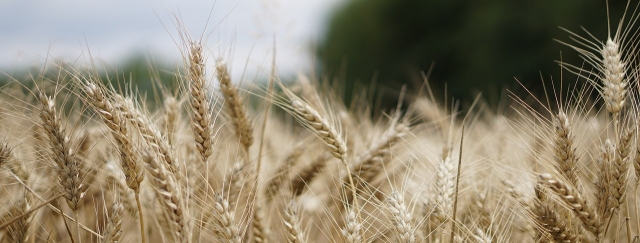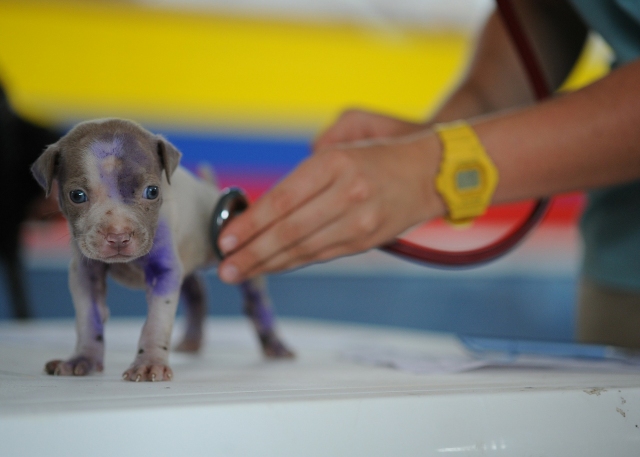
Daniel Dörler
University of Klagenfurt
The University of Klagenfurt, founded in 1970, is one of the young public universities in Austria. The degree programmes on offer cover a broad portfolio: Cultural Studies, Literature & Linguistics, Law, Economics, Social & Societal Sciences and Technical Sciences. Around 2,000 of the 12,000 students come to Klagenfurt from almost 100 countries around the world to study here. The campus of the University of Klagenfurt is located on 10 hectares near Lake Wörthersee and the Lakeside Science & Technology Park with many high-tech companies.
In addition to the four faculties and the range of subjects they represent, so-called research areas of strength have been developed, in which scientists work on modern developments and methods in basic and applied research with a high level of international resonance. These focus on the topics of "Networked and Autonomous Systems" and "Multiple Perspectives in Optimisation".
Around 1,500 people currently work at the University of Klagenfurt in teaching, research and administration on a shared campus.The short distances enable a high level of dynamism and innovation in dealing with new social requirements and challenges. From a very early stage, projects at the University of Klagenfurt were part of Österreich forscht. Contributions to the Third Mission are made across all disciplines and are visible in various social fields.
We are therefore particularly pleased that the University of Klagenfurt is now also part of the Citizen Science Network Austria and we warmly welcome them!

Die Wiener Volkshochschulen
We are very pleased to welcome the Wiener Volkshochschulen (Vienna Adult Education Centres, VHS) to the Citizen Science Network Austria. The Vienna Adult Education Centres offer courses on a wide range of topics for an interested audience. These courses are spread all over the city and offer the right course for every taste. As the largest adult education institution in the German-speaking world, the Vienna Volkshochschulen offer educational opportunities that help people to improve their situation by their own efforts.
Due to this broad range of educational opportunities, the Vienna Adult Education Centres are a very valuable partner, which can complement the network excellently with its expertise in the field of education.

University College for Agrarian and Environmental Pedagogy
We are very pleased to welcome the University College for Agrarian and Environmental Pedagogy in Ober St. Veit to the Citizen Science Network Austria. It is Austria's only training centre for agricultural and environmental pedagogues, teachers from the agricultural education system and employees of the agricultural consulting and support service. Apart from training, the University also conducts scientifically sound research in the sense of research-based teaching and learning.
We are very pleased to have the University of Agricultural and Environmental Education as the first university of education in the Citizen Science Network Austria and are convinced that the network can benefit greatly from this new expertise.

FH Salzburg

Nationalpark Neusiedler See
The Neusiedler See - Seewinkel National Park is the only steppe national park in Austria and is home to a wealth of animal and plant species. The National Park is particularly famous for the many bird species that can be observed there. This is why the National Park is also particularly popular with ornithologists. The diversity of habitats found in the National Park is also fascinating: there is the lake with its famous reed belt, periodically drying salt lakes, mowing meadows, pastureland for grazing and sandy habitats.
The Neusiedler See - Seewinkel National Park also has a department for Monitoring, Research and Citizen Science. We are therefore honoured that the National Park team also approached the Citizen Science Network Austria to become the first National Park ever to become a member. We are very much looking forward to the future cooperation and welcome the National Park Neusiedler See - Seewinkel!
FWF
The Austrian Science Fund FWF (Fonds zur Förderung der wissenschaftlichen Forschung) is Austria's central institution for the promotion of basic research. The FWF aims at the progression of science at a high international level. It contributes to cultural development, to the expansion of the knowledge-based society and thus to the increase of added value and prosperity in Austria.
The objectives of the FWF are:
- Strengthening Austria's scientific performance in international contexts and its attractiveness as a science hub, above all by promoting top-level research by individuals or teams, but also by contributing to improving the competitiveness of research institutions and the Austrian science system.
- Qualitative and quantitative expansion of the research potential according to the principle "education through research".
- Increased communication and expansion of the interactions between science and all other areas of cultural, economic and social life, whereby the acceptance of science in particular is to be consolidated by systematic public relations work.
It was not self-evident that the FWF would become a partner for the Citizen Science Network Austria. That is why we are all the more pleased that in the FWF we have not only gained a partner with an outstanding national and international reputation, but also an active member who is involved in working groups and thus helps to create the basis for excellent research in the field of citizen science in Austria. We would like to express our sincere thanks for the support in the past years and hope for continued excellent cooperation in the future.
![]()
Medical University Vienna
The Medical University of Vienna (short: MedUni Vienna) is one of the most long-established medical training and research institutions in Europe. With around 8,000 students it is today the largest medical training institution in the German-speaking countries. With its 26 university clinics and three clinical institutes, 12 medical theory centres and numerous highly specialised laboratories, it is also one of the most important top research institutions in Europe in the biomedical field.
As one of the most innovative medical universities in Europe, MedUni Vienna is constantly working to attract the best minds to advance medical research, teach future-oriented knowledge and ensure the best possible and most advanced treatment for patients.
And MedUni Vienna also relies on citizen science in some of its projects, and is represented by two of them: the Pollen Diary and the Ragweed Finder. We are very pleased that this important institution in the German-speaking research area is also a member of the Citizen Science Network Austria and look forward to continued very constructive and pleasant cooperation.

Österreichisches Kuratorium für Landtechnik und Landentwicklung
The Österreichische Kuratorium für Landtechnik und Landentwicklung (ÖKL) is a non-profit association (founded in 1947), acting on behalf of the Federal Ministry for Sustainability and Tourism and sees itself as
- Platform for discussion, coordination and information for rural areas,
- Link between research, administration and practice,
- "Catalyst" for the implementation of new ideas and projects and as
- Liaison office to authorities, offices, ministries, universities, testing institutes etc.
The aims of the association are the promotion and further development of innovative production processes and application techniques in agriculture and the energy sector, the safeguarding and improvement of the economic efficiency and function of buildings (house and farm) in agricultural construction, the coordination between the requirements of modern agricultural techniques and the sustainable development of rural areas, the preservation of the cultural landscape in terms of regional land use planning, ecology and land development, the competitiveness and social quality on family farms and the transfer of information as a decision-making aid without detours to where it is needed (local authorities, farmers, advisers, experts).
Through this very practical work and through its commitment to citizen science with the Biodiversity Monitoring by Farmers, the ÖKL is a competent partner in the citizen science Network Austria and we are very pleased that the association supports the network with its expertise.

Institute of Advanced Studies
The Institut for Advanced Studies (IHS) is a non-university, highly visible and well-connected research centre in the economic and social sciences, which develops issues in dialogue with politics and science and provides both scientific and policy-relevant contributions. Its scientists work in an application-oriented manner on issues that are geared to current social challenges and anticipate future policy-relevant issues.
Private sector consultancies in particular do not have the opportunity or expertise to offer this independent research work at a high level. Conversely, university research cannot always provide the necessary bundling and interdisciplinary research that is needed. The IHS combines economic and social science disciplines under one roof and organises its research in thematically oriented, agile research units. It is a reliable, independent partner for politics and society and provides policy-relevant and scientifically sound expertise in selected longer-term topics.
Thus, the IHS has been active for a long time, especially in research on citizen science. We are therefore very pleased to have IHS as a very competent partner in this area of research in the Citizen Science Network Austria.

University of Veterinary Medicine Vienna
The University of Veterinary Medicine Vienna is the only veterinary, academic educational and research institution in Austria and at the same time the oldest in the German speaking countries (founded 1765 by Empress Maria Theresia). The University of Veterinary Medicine Vienna conducts research on topics that are important for society. It focuses on animal health as well as preventive veterinary medicine, public health and food safety. Research interests include the creation of scientific foundations for animal welfare, animal husbandry, animal protection and animal ethics.
The University of Veterinary Medicine Vienna has been represented on Österreich forscht for a long time now, and with the commitment of the project management in the various working groups, it has become a very important and valued partner in the Citizen Science Network Austria.













